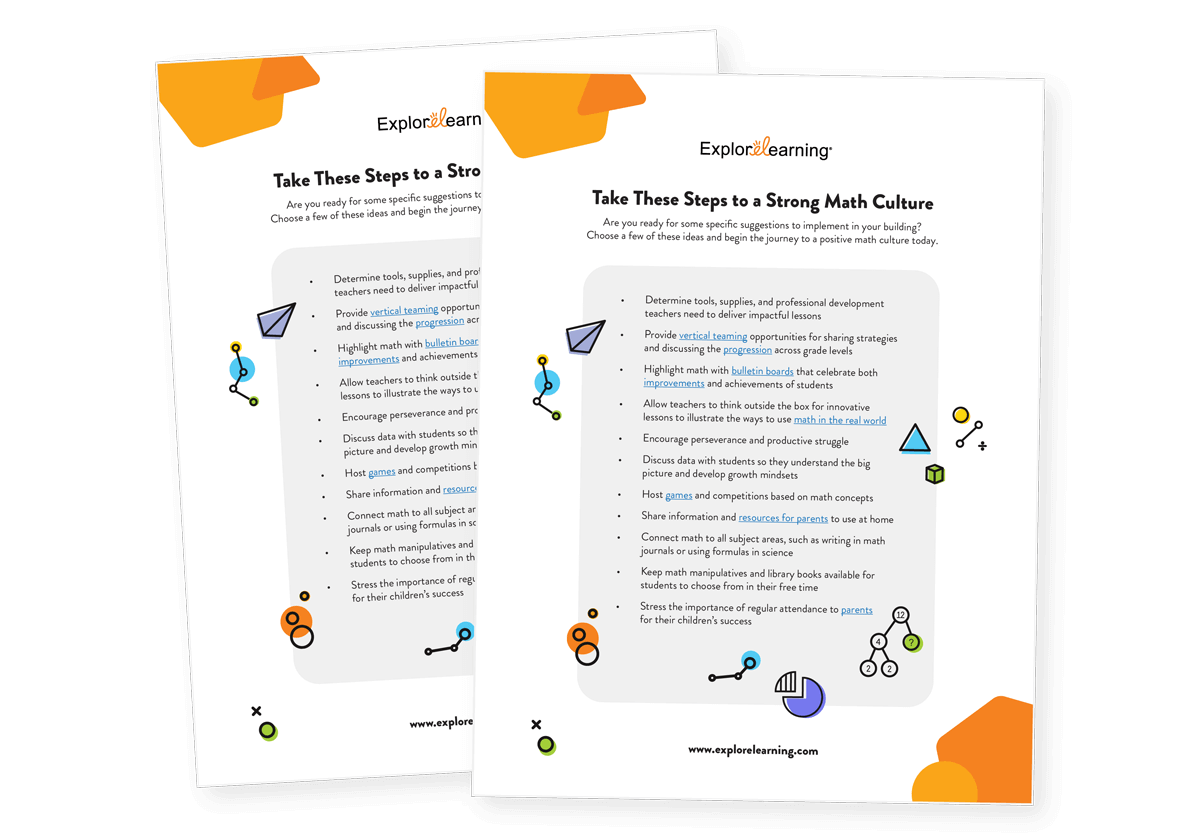
Imagine a school where teachers felt equipped to deliver meaningful instruction and students recognized the importance of conceptual understanding in math. It doesn’t have to be a fantasy. A positive math culture is possible through a unified vision with realistic goals. It all starts in the office!
Regardless of your personal struggles or successes with math, administrators set the tone for buildings. Choosing to emphasize math has benefits for your students that go far beyond numbers and equations. Your students will learn critical thinking and communication skills necessary for every career path. They will develop solid problem-solving abilities to carry them through life.
Even though math has been a crucial subject going back to the one-room schoolhouses teaching the 3 Rs (Reading, Writing, Arithmetic) to classes, there can still be resistance to embracing a math culture. How do you get buy-in from teachers, students, and families? Involve them!
What does a positive math culture look like?
Step into a school with a positive math culture, and you’ll discover staff and students who teach and learn authentically. Teachers model their insecurities or confidence in math. A consistent language is used in math classes across grade levels and different classrooms. Students realize that being a good math student doesn’t mean solving problems quickly. Success in math is about accuracy, efficiency, and process flexibility.
It’s also important to drive decisions with data. Take that one step further by linking with students in those discussions to discover their concerns and stumbling blocks with concepts. You might find that several students have the same problem, making it easier to address as a larger group. Many students give up on math because they don’t see its relevance or find it boring. It is crucial to bring them into the greater conversation of how the ability to comprehend and apply concepts reach beyond the classroom. It opens their eyes to the possibilities that math does relate to their lives. You can illustrate that point with examples from sports, cooking, and music.
Developing a positive math culture is all about creating a safe space for students to be risk-takers as they search for answers! Establish routines they can depend on at school. Encourage questioning to build a more profound understanding. Show them that mistakes lead to success. Take the time for reflection. Make learning fun with products like ExploreLearning Reflex, Frax, and Gizmos! When students are invested, faculty and staff can build and maintain a school where math matters.
Bring interactive math solutions to your school that are serious fun!
Sign up to get the latest updates from ExploreLearning via occasional email.

